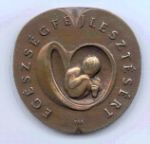2. Multicultural education (HU, AT, PT)
Introduction
Nowadays the question of colourful societies, that is, the state of minorities in our countries, has come increasingly into the foreground. But who do we call a minority? The concept does not refer to numerical characteristics but to an inferior, disadvantaged position. Different national and ethnic minorities, women, the disabled and the sexual minorities belong under this concept. Classification by ourselves or by others to the given minority groups is the result of different social, political, economic and personal considerations. Present modern societies are aware of this variegation of nations, though it does not mean they show maximal tolerance towards individuals and groups differing from the majority society.
Schools have a great role in developing a perspective in people in which discrimination and xenophobia are not present. Schools transmit their values through the official and the hidden curriculum; the development of a multicultural perspective in every educational institute would be a favourable aim. Multicultural education policy though can be developed in those cases only when the given minority formulates its unique aims concerning education and at the same time the dominant ethnic group acknowledges cultural and linguistic differences.
For the sake of being able to overcome the negative effects of prejudice we have compiled a professional – methodological package for lower-primary teacher trainees and teachers. We founded the theory of multicultural education and minority studies with processing the following topics: Possibilities to understand the concept of minorities. Social perception of minorities; History of national and ethnic minorities; The concept of prejudice and its role in personality development; Linguistic discrimination and linguistic human rights; Gender roles in the society, The state of women; Sexual minorities; Social acceptance of otherness, the state of the disabled; History and concept of multicultural education; Educational practices for preventing prejudices; Curriculum and teaching aids; The state of multicultural education in the participating countries; and Bilingualism, bilingual education. Theoretical issues are founded by the so called “General” topics that aim at providing a wide – relevant to each country of the European Union - understanding of relevant concepts. These general topics are then completed with “Unique” topics containing country-specific realisations of multicultural issues in question, making the module itself multicultural this way.
CONTENTS
Conceptual umbrella
Preface
1. Zsuzsanna Benkő: Possible ways of understanding the concept of minority. Social perception of minorities.
2.1. Klára Tarkó: History and present of national and ethnic minorities in Hungary.
2.2. Carlos Cardoso: Ethnic minorities in Portugal: History and present situation.
2.3. Renate Seebauer and Martin Bolz: Ethnic minorities in Austria - from “minority“ to the so-called “Austrian national minority“
3. Katalin Erdei and László Lajos Lippai: The concept of prejudice and its role in personality development.
4. Klára Tarkó: Linguistic discrimination, linguistic human rights.
5. Klára Tarkó: Gender roles in the society; the state of women.
5.1. Klára Tarkó: gender roles in the society; the state of women in Hungary.
5.2. Teresa Pinto: Gender roles in society - the status of women in Portugal.
5.3. Renate Seebauer: Gender issues in Austria - Optimisation of opportunities through the “gender mainstreaming” movement.
6. László Lajos Lippai: Sexual minorities.
7. Zsuzsanna Benkő: Social acceptance of otherness. The disabled.
7.1. Zsuzsanna Benkő: Social acceptance of otherness. The disabled in Hungary.
7.2. Isabel Madureira: Social acceptance of otherness. The disabled in Portugal
7.3. Martin Bolz and Renate Seebauer: Austria: Inclusive education against the backdrop of the concept of dignity.
8. Klára Tarkó: History and concept of multicultural education.
9. Klára Tarkó: Educational methods for preventing prejudice. Cooperative education.
10. Klára Tarkó: Curriculum and teaching aids.
11.1. Klára Tarkó the state of multicultural / minority education in the partner countries - Hungary
11.2. Carlos Cardoso: The state of multicultural / minority education in the partner countries. Ethnic diversity in the Portuguese education system.
11.3. Martin Bolz: The state of multicultural / minority education in the partner countries – Austria.
12. Klára Tarkó: Bilingualism, bilingual education.
12.1. Klára Tarkó: Bilingualism, bilingual education in Hungary.
12.2. Lúcia Vidal Soares and Paulo Feytor Pinto: Bilingualism and bilingual education in Portugal
12.3. Renate Seebauer: Bilingual education in Austrian schools.
Authors
Prof. Zsuzsanna Benkő, Dr. PhD. Habil. Sociologist, Head of the Department of Applied Health Sciences, University of Szeged, Juhász Gyula Teachers’ Training College. International professional coordinator of the Comenius 2.1 project.
Prof. Mag. DDr. Martin Bolz, Department of Education; State College of Education Vienna; Accred. Lecturer in Education (University of Derby, UK).
Prof. Doutor Carlos Cardoso, PhD. Social Sciences Area Coordinator, Department of Basic Education, Instituto Politécnico de Lisboa, Escola Superior de Educação.
Dr. Erdei Katalin, Clinical Psychologist, Psychotherapist and counsellor, Department of Applied Health Sciences, University of Szeged, Juhász Gyula Teachers’ Training College.
Lippai László Lajos, Assistant Professor, Psychologist, Department of Applied Health Sciences, University of Szeged, Juhász Gyula Teachers’ Training College. Subcoordinator of the Communicational skills development module.
DrŞ Isabel Madureira, Teacher, Special Needs Area, Department of Special Education Instituto Politécnico de Lisboa, Escola Superior de Educaçăo.
Dr. Paulo Feytor Pinto, President of Portuguese Teachers Association, master in Intercultural Relations in Sociolinguistic area.
DrŞ Teresa Pinto, Sociologist, Higher technical of Equality Commission and Women Rights, Ministry Council Presidency.
Prof. Dr. hab. et Mag. Renate Seebauer, Department of Educational Psychology; State College of Education Vienna; Accred. Lecturer in Education (University of Derby, UK). TEMPUS-Office; Coordinator of ERASMUS and COMENIUS Projects.
DrŞ. Lúcia Vidal Soares, Teacher, Portuguese Language Area, Department of Basic Education Instituto Politécnico de Lisboa, Escola Superior de Educaçăo, Master in Intercultural Relations in Sociolinguistic area.
Tarkó Klára, Dr. PhD. Associate Professor. Sociologist. Department of Applied Health Sciences, University of Szeged, Juhász Gyula Teachers’ Training College. Sub-coordinator of Multicultural education module, Project-coordinator.
